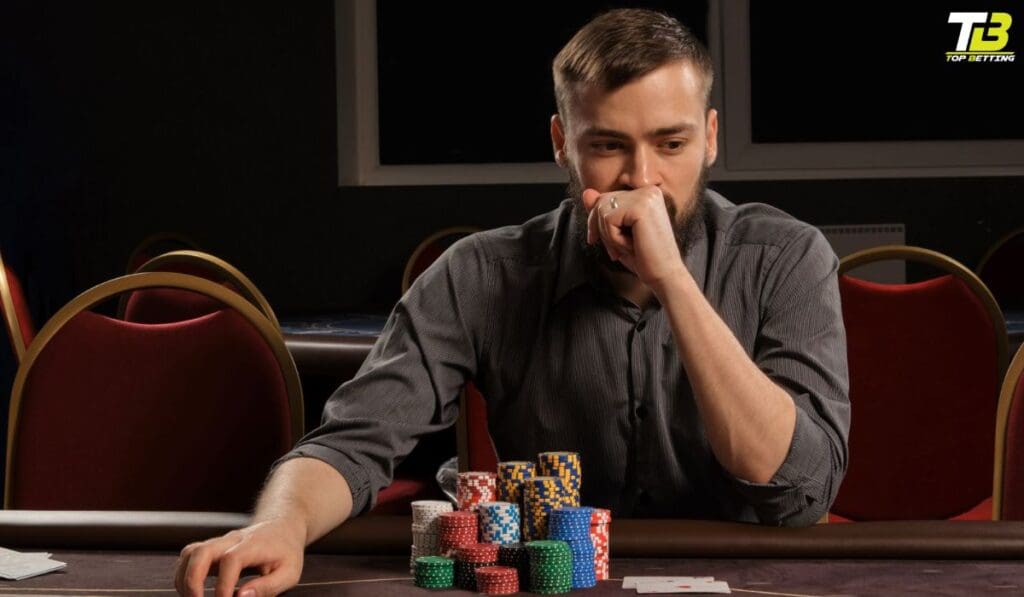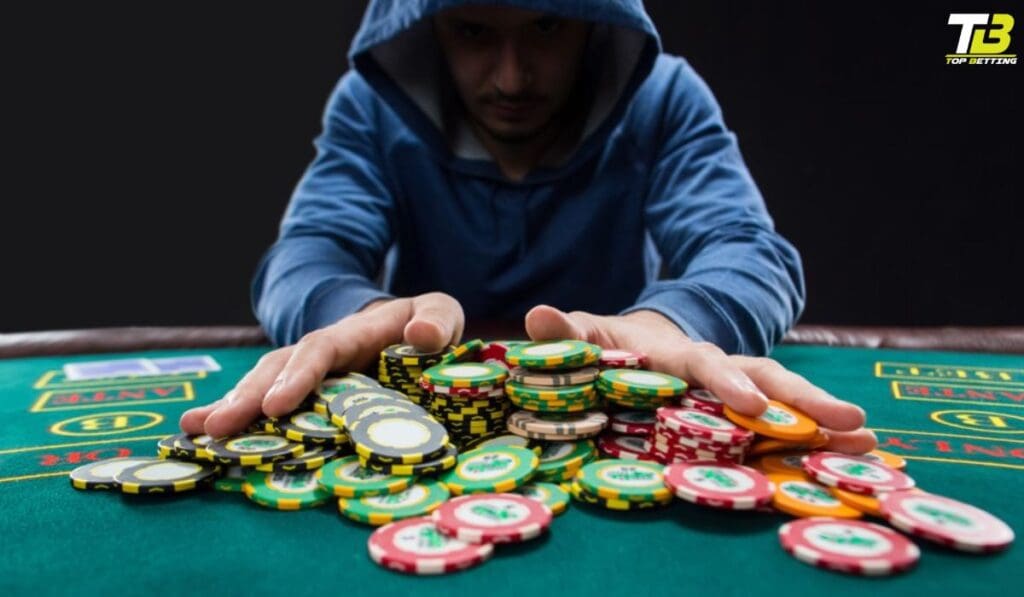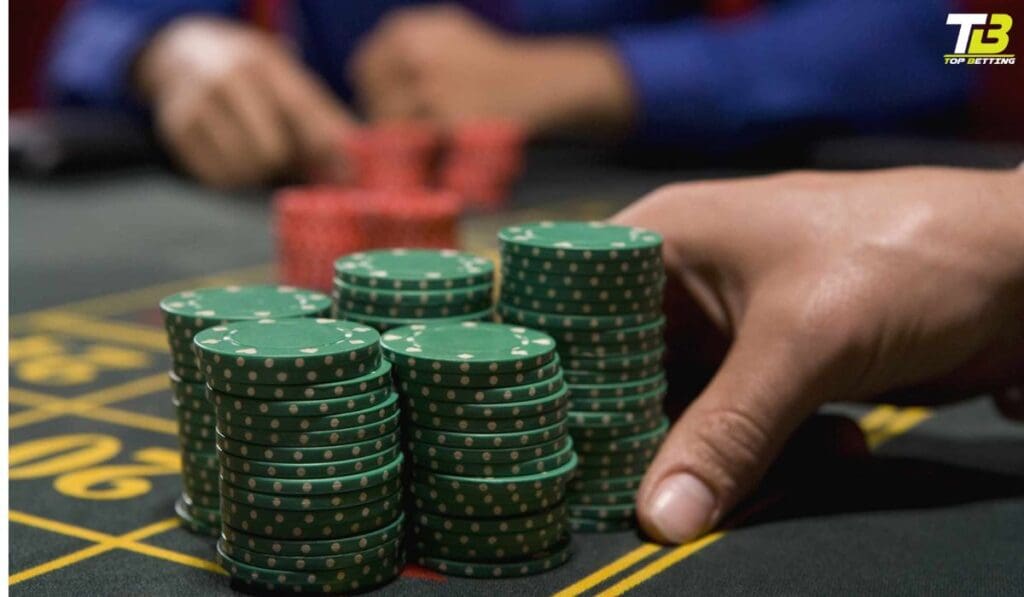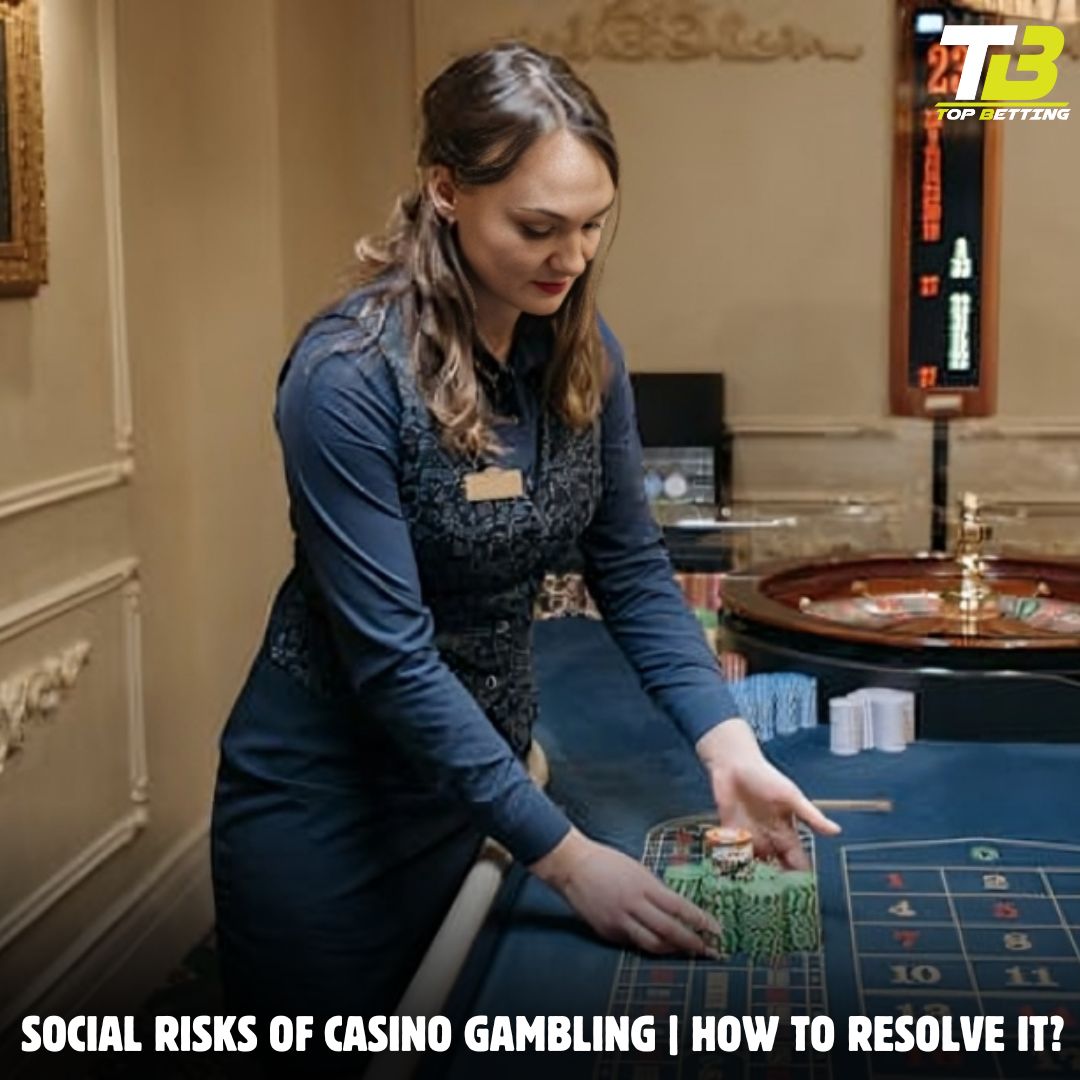
Social Risks of Casino Gambling | How to Resolve It?
Casino gambling is a popular pastime for many people worldwide, offering excitement and the potential for big wins. However, it’s important to look beyond the glittering lights and think about the social risks associated with this form of entertainment. In this article, we delve into the negative consequences that can arise from casino gambling and explore potential solutions to resolve them.
Impact of Casino Gambling on Individuals and Families
One of the primary social risks of casino gambling is the potential for addiction. Gambling addiction can have devastating effects on individuals and their families, leading to financial ruin, mental health issues, and strained relationships. The thrill of chasing a win can become all-consuming, and individuals may find themselves unable to control their gambling habits.
Moreover, the accessibility of online gambling platforms has made it easier than ever for people to engage in excessive gambling behaviors. With just a few clicks, individuals can access a wide range of casino games, placing bets from the comfort of their own homes. This convenience can exacerbate addiction problems and increase the risk of financial losses.
The impact of gambling addiction is not limited to the individual alone. Families often bear the brunt of the consequences as well. Financial stability may be compromised due to mounting debts, leading to stress and conflict within households. Relationships may deteriorate as trust is eroded, and individuals struggling with addiction may isolate themselves from loved ones. It is crucial to address these social risks and find ways to mitigate the harm caused by casino gambling.
Financial Consequences of Casino Gambling
Another significant social risk of casino gambling is the financial impact it can have on individuals and their families. The allure of the possibility of winning big can lead individuals to spend more money than they can afford to lose. This can result in financial instability and even bankruptcy.
Low-income individuals are particularly vulnerable to the financial consequences of casino gambling. The desire for a quick financial turnaround may drive them to take financial risks they cannot afford, further exacerbating their financial hardships. The cycle of debt can be challenging to break, trapping individuals in a cycle of financial instability and further compounding the social risks.
Social and Community Impacts of Casino Gambling
The social and community impacts of casino gambling should not be overlooked. Local economies that heavily rely on casino revenue may experience both positive and negative effects. While casinos can provide job opportunities and contribute to economic growth, they can also lead to increased crime rates, addiction problems, and social inequalities.
Moreover, vulnerable populations such as low-income individuals and young adults may be disproportionately affected by the social risks of casino gambling. These groups may be more susceptible to the allure of gambling and are more likely to suffer financial and emotional consequences. It is essential to consider the broader social impact of casino gambling and prioritize the well-being of all members of society.
Symptoms and indicators of gambling addiction
Since gambling addiction does not have the same overt physical symptoms as drug or alcohol addiction, it is frequently referred to as a “hidden illness.” Additionally, problem gamblers frequently downplay or deny the issue, even to themselves. But you could have a problem with gambling if you:
Feel compelled to keep your gaming activities hidden. You could fear that people won’t understand or that you will surprise them with a large gain, so you might gamble in private or lie about how much you wager.
struggle to limit your gambling. Can you stop gambling once you start? Or do you feel forced to keep gambling until you have used up every last penny, increasing your stakes in an attempt to recover lost funds?
Even if you don’t have the money, gamble. You can gamble until your last dollar is gone, at which point you can move on to unpaid bills, credit card debt, or purchases for your kids. To get money for gambling, you could feel pressured to steal, sell, or even borrow items.
Your friends and family are worried about you. Denial perpetuates problem gambling. Pay close attention to your friends and relatives if they seem concerned. Seeking assistance is not an indication of weakness. It’s common for elderly gamblers who have lost their inheritance to be reluctant to talk to their adult offspring, but it’s never too late to turn things around.

Government Policies and Regulations to Address Social Risks
Governments play a crucial role in addressing the social risks associated with casino gambling. Implementing effective policies and regulations can help protect individuals and communities from the negative consequences of excessive gambling.
One approach is to enforce stricter regulations on advertising and marketing practices within the gambling industry. Limiting the exposure of vulnerable populations, such as young adults, to gambling advertisements can reduce the likelihood of them developing gambling problems. Additionally, implementing age verification measures can help prevent underage gambling.
Furthermore, governments can introduce measures to promote responsible gambling practices. This can include mandatory training for casino staff, ensuring they are equipped to identify and assist individuals who may be exhibiting signs of problem gambling. Implementing self-exclusion programs can also provide individuals with a tool to control their gambling habits and seek help when needed.
Responsible Gambling Initiatives and Programs
Responsible gambling initiatives are vital in creating a safer and more accountable gambling environment. Casinos can implement measures such as setting betting limits, providing information about the risks of gambling, and offering self-assessment tools to help individuals monitor their gambling behaviors. Encouraging responsible gambling practices can help minimize the social risks associated with excessive gambling.
Additionally, collaborations between the gambling industry and organizations specializing in gambling addiction treatment can provide support for individuals struggling with gambling problems. These partnerships can ensure that individuals have access to resources such as helplines, counseling services, and support groups. By focusing on early intervention and treatment, we can help individuals overcome addiction and reduce the social impact of gambling.
Treatment for gambling addiction
It’s never simple to kick a gambling habit, and getting help from a professional doesn’t indicate that you’re weak or unable of handling your issues. However, it’s crucial to keep in mind that each gambler is different, therefore you want a rehabilitation program that is customized to your requirements and circumstances. Consult your physician or a mental health specialist about your alternatives for therapy, such as:
Programs for residential or inpatient therapy and rehabilitation. These are intended for people who have a serious addiction to gambling and who can’t stop without 24-hour assistance.
Treatment for underlying medical issues, such as substance misuse or mental health issues like depression, anxiety, OCD, or ADHD, that may be causing your compulsive gambling. This could entail counseling, medicine, and lifestyle modifications. Before diagnosing you with bipolar disorder, your doctor or therapist may need to rule out problem gambling as a possible indication of the illness.
behavioral-cognitive treatment. The goal of CBT for gambling addiction is to alter harmful gambling behaviors and ideas, such as fallacious beliefs and justifications. It can also help you learn how to control your gambling cravings and deal with relationship, career, and money issues brought on by problem gambling. You can acquire lifelong coping mechanisms for your addiction through therapy.
Counseling for marriage, career, credit, and family therapy. These can assist you in resolving the particular problems that your problem gambling has brought about and provide the groundwork for mending your finances and relationships.

Support and Treatment Options for Problem Gamblers
Addressing the social risks of casino gambling requires comprehensive support and treatment options for problem gamblers. It is essential to provide accessible and effective resources for individuals seeking help.
Helplines staffed by trained professionals can offer immediate assistance and guidance to individuals struggling with gambling addiction. These helplines can provide a confidential space for individuals to share their concerns and receive information about available treatment options.
Counseling services can play a crucial role in helping individuals address the underlying issues that contribute to their gambling problems. Therapists can provide support, guidance, and strategies for managing cravings and developing healthier coping mechanisms.
Support groups, both online and in-person, can create a sense of community and understanding among individuals facing similar challenges. Sharing experiences and learning from others can be instrumental in the recovery process.
Education and Prevention Strategies
Education and prevention strategies are key components in resolving the social risks of casino gambling. By increasing awareness about the potential harms of excessive gambling, individuals can make informed decisions and take steps to protect themselves and their loved ones.
Schools and educational institutions can implement gambling education programs to equip young people with the knowledge and skills to make responsible choices. These programs can educate students about the risks associated with gambling, teach critical thinking skills, and provide resources for seeking help.
Public awareness campaigns can also play a vital role in educating the general population about responsible gambling practices and the potential social risks involved. These campaigns can utilize various media channels to reach a wide audience and promote responsible gambling behaviors.

Conclusion and Recommendations for Resolving Social Risks of Casino Gambling
In conclusion, the social risks of casino gambling are significant and wide-ranging. From addiction and financial consequences to social and community impacts, there is a need to address these risks and find effective solutions.
Governments should implement policies and regulations that protect individuals and communities from the negative consequences of excessive gambling. Responsible gambling initiatives and programs should be prioritized to create a safer gambling environment. Support and treatment options must be readily available for problem gamblers, and education and prevention strategies should be implemented to increase awareness and promote responsible gambling practices.
By taking a comprehensive approach to resolving the social risks of casino gambling, we can create a more accountable and safer gambling industry that prioritizes the well-being of individuals and communities.











